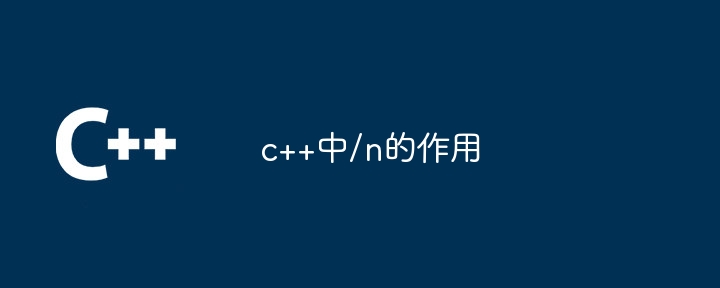Home >Backend Development >C++ >The role of /n in c++
The role of /n in c++
- 下次还敢Original
- 2024-05-01 17:00:26748browse
The '\n' in C represents a newline character, which inserts a newline character in the output and moves the cursor to the beginning of the next line. It is also used in strings to indicate the end of strings, and is widely used in scenarios such as formatting output, reading lines, and delimiting strings.

The role of '\n' in C
In the C programming language, '\n' is a An escape sequence that represents a newline character.
Function:
'\n' is mainly used to insert a newline character in the output and move the cursor to the beginning of the next line.
Detailed description:
- When '\n' is used in output functions such as cout and printf(), it will insert a Newline character. For example:
<code class="cpp">cout << "Hello" << '\n';</code>
Output:
<code>Hello</code>
- '\n' can also be used in strings to indicate the end of the string. For example:
<code class="cpp">char str[] = "Hello\n";</code>
At this time, the str string contains 6 characters: "H", "e", "l", "l", "o" and '\n'.
Uses:
'\n' is widely used in C programming for the following purposes:
- Formatted output: in output Create multiple lines of text.
- Read in line: When reading a line from a file or standard input, it indicates the end of the line.
- Delimited string: As a delimiter in a string, split the string into multiple lines.
Note:
The exact behavior of '\n' may vary in different operating systems. In Windows, it means carriage return plus line feed (CRLF), while in Linux and macOS it means just line feed (LF). Therefore, please be aware of this difference when using '\n' in cross-platform code.
The above is the detailed content of The role of /n in c++. For more information, please follow other related articles on the PHP Chinese website!

